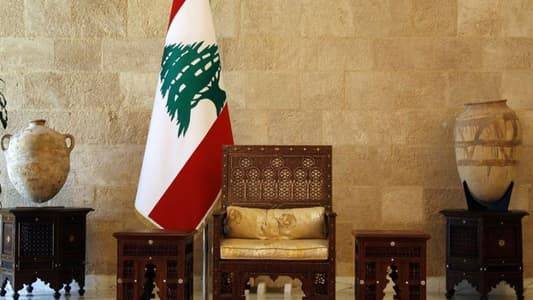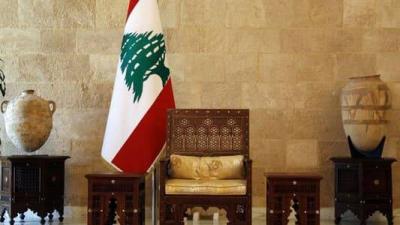The delay in the issuance of a statement from the quintet meeting held in Paris between representatives from France, the United States, Saudi Arabia, Qatar, and Egypt suggests that there were differences regarding the Lebanese file, particularly concerning the presidential issue. This was accompanied by a silence during the discussions and reliance on a statement from French Foreign Minister Catherine Colonna. Many Lebanese officials have indicated they are not aware of the discussions that took place in Paris, leading to speculation as to whether this silence indicates significant decisions being made or denotes failure. However, the latest information revealed that Paris proposed appointing "Marday" leader Sleiman Frangieh concurrently with the return of Prime Minister Najib Mikati to the premiership, a proposition that apparently did not meet acceptance from other country representatives. The Saudi representative emphasized the need for the election of a sovereign, non-corrupt president for Lebanon who restores the country's relations with the Arab states and enjoys global connections.
Before the Paris meeting, Washington witnessed meetings of the Lebanese American Coordinating Committee with several officials from the U.S. administration and Congressmen to strengthen U.S.-Lebanese relations and support for sovereign, reformist, and change-oriented forces confronting constitutional drafters and obstructors of reform, affirming that the election of a sovereign reformist president is essential for Lebanon's sovereignty and the implementation of structural and sectoral reforms. These meetings initiated at the U.S. State Department with Eastern Mediterranean Director Stephen Butler and continued with Congress members Mark Takano, Jim Himes, David Cicilline, and others, alongside meetings with the Consul of the EU mission in Washington, Lucas Cibor, and First Counsellor of the French embassy, Damien Christo Faré.
It is known that the Lebanese American Coordinating Committee (LACC), which works with the U.S. administration to preserve the Lebanese cause and protect Lebanon's national interests, visited Beirut last summer to survey the existing political, economic, social, and financial conditions after the parliamentary elections and strategies to face the difficulties faced by Lebanese citizens. Members of the committee met with various leaders, diplomatic bodies, parliamentary blocs, and army commander General Joseph Aoun. The committee comprises eight organizations, including the American Lebanese Institute for Policies, the Gathering for Lebanon, the Lebanese-American Renaissance Partnership, and others. The civil impact forum serves as the advisory organization for the committee.
A notable figure among this committee is Meir Rihani, the Director of the Washington Office at the Lebanese Cultural University in the World, who had previously announced her candidacy for the Lebanese presidency and returned to Beirut recently to follow the presidential election developments, which have faced stagnation as sessions have shifted to dull ones resembling the same scenario between voters for candidate Michel Moawad and those opting for white papers and others rallying under the banner of "New Lebanon."
With Speaker Nabih Berri agreeing with Hezbollah, there will be no new election session before ensuring a shift in the scene, particularly regarding a competing candidate to Moawad, like Frangieh, capable of securing 65 votes in the second round. The initiative led by Democratic Progressive Party leader Walid Jumblatt aimed at dropping the candidacies of both Moawad and Frangieh in favor of one of the names from a trio including Army Commander General Joseph Aoun, former Minister Jihad Azour, and former MP Salah Hennin has not gained acceptance from either Berri or Hezbollah, upsetting Moawad due to the lack of prior coordination with him and the Lebanese Forces to ensure that there is no abandonment of power cards in facing the March 8 team. This implies that the dialogue called for by the Shiite duo and their call for consensus explicitly means agreement on their candidate while rejecting any other nominations even if the army commander is not aligned with any party.
However, Jumblatt has not dismissed the name of candidate Meir Rihani, as her name continues to circulate behind the scenes, given her experience and connections with the U.S. administration and Arab states, especially Saudi Arabia, in addition to her relationships with the World Bank and international organizations. These connections lend her credibility with donor entities and position her capability, if elected, to launch a reformative and transformative path, attracting support and investments while encouraging expatriate Lebanese to return to their homeland. Prior to her return to Beirut, Rihani had met with former Assistant Secretary of State for Near Eastern Affairs David Schenker, among others.
Certain Lebanese leaders have been informed about discussions in Washington regarding the presidential issue and continued support for the Lebanese army, noting a distinction made between the army and its commander. Some U.S. officials, including Darrell Issa, confirmed Washington's continued support for the Lebanese army, without it necessarily translating into support for the army commander’s candidacy. One official remarked, “We will continue to support the army but…” registering some reservations about General Aoun's performance, particularly regarding border control, existing tunnels, and preventing smuggling and Captagon.
As the situation continues to develop, it appears that the path to the Baabda Palace is not entirely paved for candidates like Frangieh and Moawad, nor even for the army commander. Is there a candidate capable of saving the entity and restoring the state? And is there an opportunity for a candidate who knows how to address the international community, Gulf states, and the IMF and can present a positive image of Lebanon?




